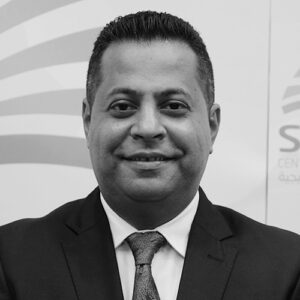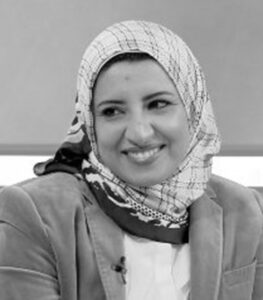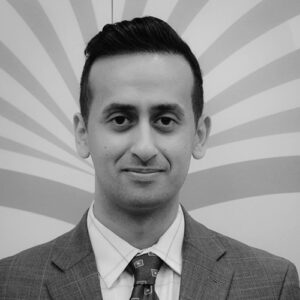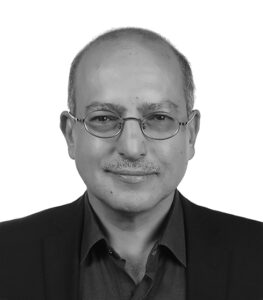As US President Donald Trump’s administration winds down, reports have emerged that Washington is once again considering the idea of designating the armed Houthi movement, Ansar Allah, as a foreign terrorist organization. Such a move would criminalize most interactions with the Houthi movement conducted without US government waivers.
The United States, a key international actor in the Yemen conflict and strong supporter of the Saudi-led coalition, hasn’t received public support from its Western allies for such a designation. On December 8, the United States imposed terrorism-related sanctions on Hassan Eyrloo, the recently-appointed Iranian ambassador to the Houthi government in Sana’a. The US claims that Eyrloo is an officer in Iran’s Islamic Revolutionary Guard Corps – Quds Forces. It is unclear whether the sanctions targeting Eyrloo were linked to the planned designation of the Houthi movement, or indicate that the US may be reconsidering its plans.
Sana’a Center experts respond to the prospect of a broader FTO designation and what impact such a parting shot by the Trump administration — regardless of whether intended more for the Houthis or the Iranian regime that supports them — could have on the Yemen conflict, and on Yemeni civilians.
This publication is part of a series of publications by the Sana’a Center examining the roles of state and non-state foreign actors in Yemen.
Trump’s Parting Shot Against Iran Would Be At Yemen’s Expense
By Waleed Alhariri, head of the New York office of the Sana’a Center, whose work focuses on Yemen issues at the United Nations
Designating the armed Houthi movement, Ansar Allah, a terrorist organization is an attempt by the Trump administration to ratchet up its ‘maximum pressure’ campaign on Iran. For Yemen, and attempts to peacefully end six years of war, it would be a significant setback.
A US foreign terrorist organization (FTO) designation would limit Western diplomatic access to the Houthis. US diplomats, for example, were involved in brokering mini-deals related to prisoner exchanges facilitated by Oman. Without US pressure — such contact is barred under an FTO designation — the Houthis would have more room to stall any UN calls for compromise. A more effective approach would target individual members of the group, as the UN sanctions committee recommended in its January 2020 report and, the Sana’a Center confirmed, will do so again in an upcoming report.
According to an Arab diplomat familiar with the lobbying efforts, the Yemeni government has sought the FTO designation only for the Houthis’ military wing as a way to disempower the group militarily but allow for its politicians to negotiate a political settlement. The diplomat told the Sana’a Center that the Emiratis and Saudis, who led the Arab military coalition against the Houthis, pushed for a broader designation, one that would include the group as a whole.
Governments of Saudi Arabia and the United Arab Emirates swiftly designated the Iranian-backed Houthi movement a terrorist group in 2014, after the Houthis led an armed coup and took over the capital, Sana’a, and surrounding governorates. Since then, Riyadh and Abu Dhabi along with the internationally recognized government of Yemen — and, on a separate track, Israel — have lobbied first the Obama administration and then the Trump administration to designate the Houthis as an FTO.
As in the past, calls for a Houthi FTO designation flare when the United States, Arab Gulf countries and Israel decide to apply pressure on their common adversary, Iran. In media briefings and in UN statements, the Trump administration consistently has used Iranian support for the Houthis to condemn and pressure Iran, including the submission of a draft council resolution in February 2018 concerning illegal use of Iranian-made missiles by the Houthis in Yemen. That resolution was blocked by a Russian veto, but the administration’s pressure campaign against Iran continued to use the Houthi missiles to justify harsher action against Iran, including an FTO designation. It dropped these plans amid criticism from humanitarian groups who feared it would disrupt their responses, and from the UN envoy’s office, which enlisted UK help in convincing the Americans it would have a chilling effect on UN negotiating efforts.
Today, Israel and Gulf Arab countries are concerned a Biden administration will revive a version of the Obama-era Iran nuclear deal. That possibility intensifies the campaign against Iran, as seen in the recent assassination of a top Iranian nuclear scientist as well as the revived Houthi FTO plan. And as US President Donald Trump leaves office, he appears intent to score a final point against Iran, at Yemen’s expense.
This Political, not Moral, Decision Risks Strengthening Houthis
By Maysaa Shuja al-Deen, non-resident fellow at the Sana’a Center whose research includes the roots of radical Zaydism
Although modern Yemeni history has witnessed several violent ascensions to power, the Houthi rise has been particularly depressing because it followed the 2011 uprising, which was premised on peaceful struggle and sought to eliminate tyranny by individuals or groups and to establish a government accountable to all citizens. The Houthis, however, chose to impose their will through violence even though after the uprising they, too, had access to the means to participate politically and compete for support.
What the Houthi movement has accomplished in the years since — through blowing up the homes of its rivals, collective punishments such as the siege of Taiz and the arbitrary use of landmines — undermines society’s attempt to break the cycle of violence. It has awakened historical vendettas and divisions. So it is little wonder some Yemenis celebrated Washington’s plan to officially designate Ansar Allah, the Houthis, a terrorist organization as an overdue international recognition of the group’s extreme violence and the major setback it has dealt Yemen.
Welcoming that decision, however, overlooks several key factors. First, the designation is based entirely around US security and interests. It is a political decision aimed at Iran, the Trump administration’s “last hurrah” in this regard, rather than a moral indictment of the violence the Houthis have perpetrated against their own citizens. Second, this decision allows the Houthis to affirm their narrative that the ongoing conflict is an anti-imperialist struggle against the global superpower that is the United States. That, in turn, could embolden their rhetoric and strengthen their organization by gaining the sympathies of others who oppose American hegemony, including Western activists and journalists. Another risk of the designation is that it will drive the Houthis closer to other actors targeted by similar US actions, including Hezbollah and the Iranian and Syrian regimes, as well as toward Washington’s international rivals, China and Russia.
The problem with the US classification of the Houthis does not lie in whether the movement is morally worthy of such condemnation, but rather the implications of this decision. Whenever this classification has been used, whether targeting regimes as state sponsors or terrorism or groups such as Hezbollah and Hamas, it has done nothing to undermine the control these regimes and groups have over their people. On the contrary, it can contribute to the consolidation of their power and increase the persecution they practice by providing excuses for the poor level of services they provide and for people’s deteriorating livelihoods. Furthermore, targeted state and non-state actors can find ways around sanctions and blockades; their control over what few channels remain with the outside world also can increase their control over their isolated societies. For the people living under their control, a state of economic isolation and deprivation exacerbated by sanctions only further exhausts and depletes the local society, diminishing its ability to resist the tyranny under which it resides.
Who Will Benefit from the FTO Designation of the Houthis?
By Abdulghani Al-Iryani, senior researcher at the Sana’a Center
While conflict situations are usually volatile, political dynamics always strive toward equilibrium. Disrupting an equilibrium triggers another round of volatility and violence, as parties to the dynamic strive for a new balance. The reported plan by the Trump administration to designate Ansar Allah, commonly known as the Houthi movement, as a foreign terrorist organization (FTO) will disrupt several equilibriums in the Yemen conflict:
Internal Ansar Allah equilibrium: Ansar Allah is highly centralized and united by the ideological and religious loyalty of its members to their “wali al-alam,” or divinely ordained leader of the time. Still, its rapid expansion over the past few years has fractured the Houthi movement along ideological and practical lines. The two key broad factions that have thus far balanced each other are the pragmatic leaders, many of whom have become fabulously wealthy and are willing to compromise to protect the substantial gains they have had so far, and the ideologues, who view their control of Yemen as a stepping stone to their true mission of taking over Mecca, Medina and beyond. The FTO designation will be a shot in the arm for the ideologues and their strategy of pursuing continued escalation against Saudi Arabia.
Ansar Allah-Yemeni government-Southern Transitional Council equilibrium: The FTO designation will come at a time when the equilibrium among Yemeni parties to the conflict is already quite volatile due to Houthi successes on the Marib front. The most likely outcome of such designation is pushing the Houthis and STC closer to each other as their main opponent, the Yemeni government, derives its strength from international legitimacy and recognition, which both lack and are threatened by.
Ansar Allah-Islah party equilibrium: The FTO, coupled with the earlier Saudi designation of the Muslim Brotherhood as a terrorist organization, will strengthen Yemeni president Abdo Rabbu Mansour Hadi at the price of nudging Islah further from Hadi and closer to the Houthis.
Ansar Allah-UN envoy equilibrium: The Office of the Special Envoy of the Secretary-General for Yemen (OSESGY) has had tenuous relations with Ansar Allah. Already constrained by UN Security Council resolutions, especially 2216, and by the considerable leverage of countries party to the conflict that are funding OSESGY activities, the new FTO designation will make it even harder for the OSESGY to maintain appearances of neutrality and even-handedness.
Ansar Allah-UN humanitarian affairs office equilibrium: The power balance between the Houthi movement and the UN Office for the Coordination of Humanitarian Affairs (OCHA) is so lopsided. All leverage is in the hands of the former – in terms of granting visas, residence permits, access to target communities, etc. – while OCHA is handicapped by the intrinsic lack of leverage engendered by UNSC resolutions. OCHA is further constrained by its need, and commitment, to deliver humanitarian assistance according to its standards and rules. An FTO designation will further weaken OCHA by placing additional restrictions on its humanitarian response activities.
Ansar Allah-Yemeni population equilibrium: Past experience, especially in Iraq after the first Gulf War, shows that economic pressure affects the helpless population much more than it does the ruling authorities and the associated elites. An FTO designation will help Ansar Allah tighten its grip over the population under its control, and improve its ability to recruit fighters.
Overall, the FTO will trigger disruptions in these equilibriums in ways that ultimately serve the Houthi movement.
There Must Be Smart Sanctions
By Maged Al-Madhaji, co-founder and executive director of the Sana’a Center
The probable designation of the Houthi movement as a terrorist organization by the United States has stirred debate over the usefulness of such a move. This debate mainly takes into consideration whether this designation would make peace more likely and whether a large segment of the Yemeni population in Houthi-controlled areas would be harmed more by the ensuing loss of aid. The issue also raises the deeper question as to whether the Houthi movement is a terrorist organization simply because Washington, for its own purposes and from its seat as a world power, can set the standards, or do the Houthis in their own right merit such a label?
The answer is that, within Yemen, the movement meets all the conditions of “terrorism.” The Houthis segregate based on gender, blow up houses, besiege cities, curtail freedoms enshrined in Yemen’s constitution, put people to death without due process and seek to impose their own interpretation of Sharia law.
A Houthi victory in Yemen would set the country back decades. A Houthi state would govern like a mixture of Iran’s regime and the Taliban. Yemen under the Houthis would be isolated and millions of Yemenis would pay the price with their lives. The challenge the movement poses, therefore, is not linked to temporary political calculations but rather is about the future of Yemenis and the region if the country falls under the control of a radical extremist group.
The Houthis should and must be held to account for their actions. But they are the ones who must be besieged, not the Yemeni people. It’s also essential not to yield to the Houthis’ blackmail – that any harm that befalls them will also happen to the Yemenis who live in areas they control.
There must be smarter sanctions. The US should pursue Houthi members and sympathizers who reside outside Yemen, erode the Houthis’ sources of funding, and limit their ability to build alliances or promote their propaganda. These sanctions must not only punish the group’s leader Abdelmalek al-Houthi but also, and more importantly, pursue the Houthis who wear suits and walk freely holding bags of money, establish companies, speak in international public relations forums and travel first class on international airlines.
The Sana’a Center for Strategic Studies is an independent think-tank that seeks to foster change through knowledge production with a focus on Yemen and the surrounding region. The Center’s publications and programs, offered in both Arabic and English, cover diplomatic, political, social, economic and security-related developments, aiming to impact policy locally, regionally, and internationally.

 اقرأ المحتوى باللغة العربية
اقرأ المحتوى باللغة العربية


